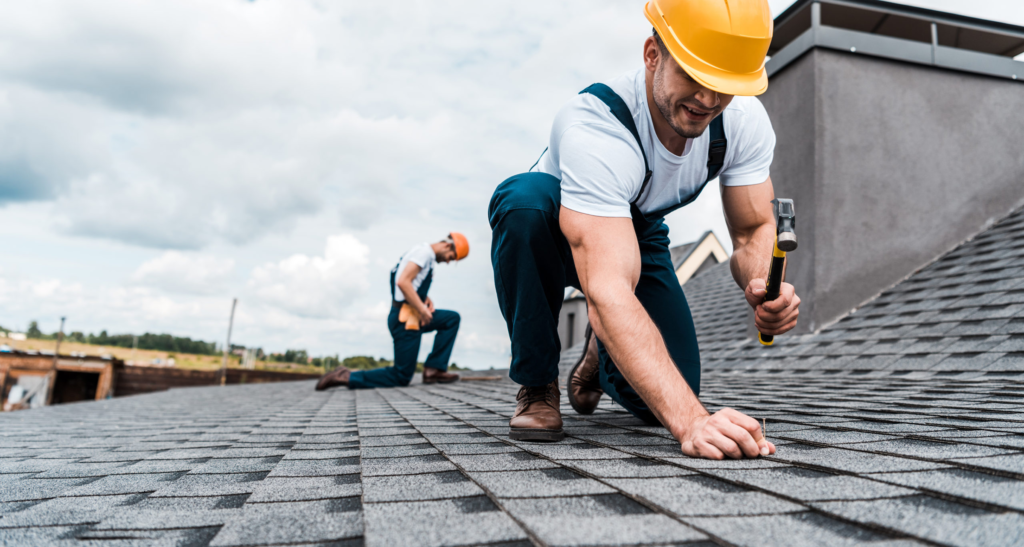A roof is one of the most critical parts of any home, protecting against the elements and ensuring long-term structural integrity. When it comes time for roof repair, roof replacement, or routine maintenance, selecting the right roofing company is essential.
With so many options available, homeowners often struggle to distinguish between reliable professionals and companies that cut corners. The wrong choice can lead to poor craftsmanship, unexpected costs, and long-term issues. Understanding what to look for in a roofing company can make all the difference in ensuring a successful and stress-free roofing project.
1. Research Roofing Companies in Your Area
Not all roofing companies offer the same level of expertise and service. The first step in finding the right contractor is conducting thorough research.
Where to Start Your Search
✔ Online Reviews and Ratings: Check platforms like Google, Yelp, and the Better Business Bureau to see customer feedback.
✔ Local Directories: Many cities have local business directories listing reputable roofing contractors.
✔ Word-of-Mouth Recommendations: Friends, family, and neighbors can provide valuable insights based on their own experiences.
A professional roofing company should have a strong reputation and positive feedback from past customers.
2. Verify Licensing, Insurance, and Certifications
A legitimate roofing company must meet specific legal and industry requirements. Before hiring a contractor, always confirm their credentials.
Why Licensing and Insurance Matter
✔ Licensing Ensures Compliance: A licensed roofer adheres to local building codes and safety regulations.
✔ Insurance Protects Homeowners: Liability insurance and workers’ compensation prevent homeowners from being financially responsible for accidents.
✔ Certifications Indicate Expertise: Manufacturers often certify roofing contractors who meet specific training and installation standards.
Before signing any contracts, request proof of licensing and insurance to avoid potential liabilities.
3. Ask About Experience with Residential and Commercial Roofing
Not all roofing projects are the same. Whether dealing with residential roofing or commercial roofing, hiring a company with relevant experience is essential.
Differences Between Residential and Commercial Roofing
✔ Residential Roofing: Typically involves asphalt shingles, metal, or tile roofing systems designed for homes.
✔ Commercial Roofing: Often requires specialized materials like TPO, EPDM, or modified bitumen for flat or low-slope roofs.
A qualified roofing company should be able to provide expertise in both areas and explain the best options based on the type of property.
4. Get a Detailed Written Estimate
A trustworthy contractor provides a transparent and itemized estimate before beginning any work. This prevents unexpected costs and ensures clarity in project expectations.
What a Roofing Estimate Should Include
✔ Labor Costs: Breakdown of installation or roof repair labor.
✔ Materials: List of roofing materials, including shingles, flashing, and underlayment.
✔ Timeline: Estimated start and completion dates.
✔ Warranty Information: Details on both manufacturer and workmanship warranties.
Avoid companies that give vague pricing or refuse to provide a written estimate.
5. Understand Roofing Warranties and Guarantees
A reliable roofing company stands behind its work with warranties that protect homeowners from defects and installation errors.
Types of Roofing Warranties
✔ Manufacturer Warranty: Covers defects in roofing materials.
✔ Workmanship Warranty: Protects against installation mistakes.
✔ Extended Warranties: Some contractors offer additional coverage for long-term protection.
Before committing to a contractor, confirm the length and terms of the warranty.
6. Assess Communication and Customer Service
A professional roofing company should provide clear communication throughout the project. Poor customer service can lead to misunderstandings, delays, and dissatisfaction.
Red Flags to Watch For
❌ Unreturned calls or delayed responses.
❌ Vague answers regarding costs and timelines.
❌ High-pressure sales tactics to rush a decision.
A good contractor is transparent, responsive, and willing to answer all questions before starting the job.
7. Evaluate Roofing Materials and Options
Choosing the right roofing materials is just as important as selecting a contractor. A reputable roofing company will educate homeowners on different materials and their benefits.
Common Roofing Material Choices
✔ Asphalt Shingles: Affordable and widely used for residential roofing.
✔ Metal Roofing: Durable and energy-efficient, with a modern appearance.
✔ Tile Roofing: Long-lasting and aesthetically appealing but requires a strong structure.
✔ Flat Roofing Systems: Common in commercial roofing, offering durability and low maintenance.
A professional contractor will help homeowners select materials that best fit their budget, climate, and aesthetic preferences.
8. Ask About Permits and Local Building Codes
Roofing projects often require permits, especially for full roof replacement or structural modifications. A knowledgeable contractor will handle permit applications and ensure compliance with local building codes.
Why Permits Matter
✔ Ensures Legal Compliance: Avoids fines or issues with home inspections.
✔ Protects Home Value: Proper permits ensure the roof meets safety standards.
✔ Prevents Delays: A contractor familiar with local regulations avoids project interruptions.
Homeowners should verify that a roofing company includes permits in the project scope.
9. Beware of Storm Chasers and Scams
After severe weather, some roofing contractors—often called “storm chasers”—go door-to-door offering quick repairs. While some may be legitimate, others engage in fraudulent practices.
How to Identify a Roofing Scam
✔ No Local Presence: Be cautious if a company operates without a physical office.
✔ Upfront Cash Demands: Avoid contractors who ask for full payment before starting work.
✔ No Written Contract: Legitimate businesses provide clear agreements with project details.
Working with an established roofing company reduces the risk of scams and poor workmanship.
10. Compare Multiple Roofing Companies Before Making a Decision
To ensure the best quality and price, homeowners should compare at least three different roofing contractors.
How to Compare Companies
✔ Look at Portfolio and Past Work: A contractor’s previous projects indicate experience and quality.
✔ Check for Complaints: Research complaints filed with the Better Business Bureau.
✔ Compare Pricing and Services: The cheapest option isn’t always the best—focus on value and reputation.
Taking the time to vet multiple companies ensures homeowners choose the best fit for their roofing needs.
Final Thoughts: Finding a Roofing Company You Can Trust
A roof is a long-term investment, and hiring the right roofing company ensures that it remains durable, efficient, and aesthetically appealing. Homeowners should prioritize contractors with a proven reputation, transparent pricing, and experience in roof repair, roof replacement, and commercial roofing.
Companies like Pineapple Roofing provide expert roofing solutions, helping homeowners and businesses maintain strong, reliable roofs. By following these steps, homeowners can confidently choose a roofing contractor that delivers quality workmanship and long-lasting results.
When it comes to roofing, a little research goes a long way. Taking the time to find a reputable contractor prevents future headaches and guarantees a roof that will stand the test of time.






